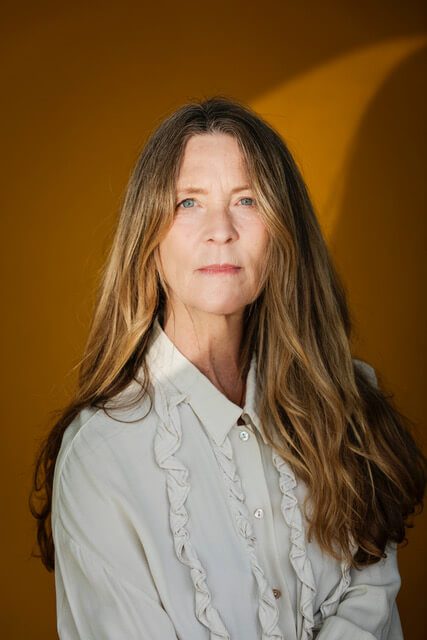Reading Time: 6 minutes
Sukanya interviews Berlin-based actor, screenwriter, and translator Stacy Thunes, specialising in comedies, horror, and true-life stories, has six screenplays and international film appearances. An exclusive for Different Truths.

Stacy Thunes (ST) is a Berlin/London-based actor, screenwriter, and translator originally from Los Angeles. She moved to Germany in 1988 and has worked and lived in Europe ever since.
Specialising in comedies, horror and true-life stories, Stacy has written and developed six screenplays and series based on the lives of real people and has several fictional scripts as well, one of which called Mount Joy was optioned by the German actor-producer Til Schweiger.
Stacy’s first narrative short film as a writer and producer, Wine Club is now making the festival rounds. She just finished producing, writing, and starring in her second horror/fantasy short, The Hairdo and was co-producer on Lauand Omar’s independent horror feature Curse Of Mesopotamia shot in Iraq and Jordan.
As an actor, Stacy can be seen in several international commercials as well as series such as Killing Eve and Spides, the recently released feature film Role Play with David Oyelowo and on Christmas Day, 2024, she can be seen in Robert Eggers’ heavily anticipated remake of Nosferatu.
Caprice Crawford from the Crawford agency in Berlin is Stacy’s representative. Talents. Here’s a candid interview by Sukanya (SBM).
SBM: With your extensive experience in acting, writing, and translating, could you share how these roles have influenced one another in your career?
ST: I think these three roles go very well together. As an actor, you have to know the character you are playing inside out, just as you do when you write them. Once you understand who your characters are, translating then becomes easy because your target language can be formulated in a way that, while staying true to the original intent and revealing character, you can play with it rather than translating word for word. You just constantly have to come back around to the author’s original intent and if it’s not lost, you can let your fantasy go wild.
SBM: You’ve had the unique opportunity to polish dialogues for screen stories. What are some common challenges in dialogue writing? How do you address them to ensure authenticity and impact?
ST: Even a layperson person recognises wooden and stiff dialogue that doesn’t differentiate the characters from each other or is just expositional dialogue that only conveys to the audience what’s going on rather than giving us subtle hints about the story and the people in it through well-selected dialogue. When I was studying acting in New York and dissecting plays, one of the rules that always stuck with me when reading them is that it’s what other characters say about your character reveals the most about you. So, if that’s not there, I try and make sure that there is a thread that connects them without veering too far from the author’s work. Another challenge is that jokes sometimes don’t work from one language to the other because of puns or words. plays, metaphors, and the like. Not only is it challenging to find the right replacements, but it’s a lot of fun because most of the time I have to make something up and devise a brand-new turn of phrase or joke that is tailored just to that particular project. When it’s a script translated from a language I don’t know, which is most of them. I have to confer with the author to make sure I’m getting it right.
SBM: How do you maintain the original tone and nuances of a script? while making it accessible to an English-speaking audience when translating from German to English?
ST: Firstly, I believe it’s imperative for the translator to not only have a scholastic knowledge of how the original language works, which is German in my case, but also knowing how it is used ‘on the street’ is super important. Then, using your language and the dexterity within it to Creating memorable dialogue isn’t so difficult.
SBM: As an actor and a writer, how do you approach character development differently in these roles? Can you share an example where your insight as an actor significantly influenced your writing?
ST: Structure is an important factor in screenwriting and so in the beginning, when doing this basic groundwork, the characters don’t play much of a role. But when you put them in the situations you’ve created to move the story along, seeing how your characters work within that framework is wild because a lot of the time they will tell you they want to go somewhere else! When you put your character in a certain situation, they may say to you, “Wait! I would never be in that situation! Let’s give me another one to get out of. of!” So, you most definitely have to remain sceptical in that regards because if you don’t listen to your characters, no one else will!
SBM: How has working across diverse settings like Germany, England, and globally shaped your professional outlook and creative process?
ST: We live in a huge world with all different kinds of people. They indeed say, “Write what you know”, which is why I, as a writer, try and get to know as much about the vastness of our world and the different people in it so I can write authentically. One thing remains the same, though: and this is true for wherever you go in the world: Most people just want the same things and that is easy to reflect no matter what kind of person you are writing about.
SBM: How do the writing demands for theatre compare to those for television and film?
ST: I don’t write for theatre normally, but as a matter of fact, I just started writing a one-act solo show for my daughter to perform. I find that the biggest challenge in writing a play is that while film and TV stories are mainly told through visuals; a play must convey the story through dialogue. Unless you’re a mime. But this proves challenging because you want to to Avoid all the issues I mentioned above but fill an hour! Let’s see how it goes…
SBM: Could you discuss your experience working as a dialect coach on the series “Spides”? What does this role entail, and how does it complement your other professional endeavours?
ST: Spides was a great experience because I started just translating the episodes based on a spec script, I sent the writer/director, and he hired me to do the translations. He needed an American for the project, as it would be one of the first English-language series coming out of Germany and he wanted everyone to speak like an American. As we got closer to production, I was able to secure an audition and then book a recurring role, so it became even more important for me to make sure the dialogue was authentic! After the show was cast, we needed to make sure that every one of the actors was able to speak with the same basic accent, American, and since I was already there as a regular cast member, I got hired to be there daily and help the other actors with their pronunciation, etc. It was an exciting job because I was also given the room to change the dialogue on set if the actors weren’t able to speak their lines authentically. So all in all, that project prepared me for all three aspects of what I do now in a completely unexpected way.
SBM: What draws you to co-write life stories and autobiographies in screenplay form, and what has been your most memorable project to date?
ST: It was more like I was drawn into it than me going out looking! Maybe because I have travelled a lot and am a very empathetic person, people pick up on that and feel I could be trusted to tell their story authentically and honestly. The first one I ever did, and the most memorable, was from a man I had met in the UK who, as a boy, lived next door to a fascinating woman, with whom he became friends. When he was older and her husband died, she told him an amazing story of how she had been in the During World War II, a disillusioned SS officer saved Buchenwald Bordello. Afterwards, eventually escaping Germany to the English countryside, where they spent the rest of their lives. I have been trying to get this project made into a movie since then and it certainly has not proven easy! But giving up is not an option!
SBM: With the rise of streaming platforms, how do you see the role of ofa script translator and dialogue polisher changing in the next few years?
ST: Because of the demand for more and more content, AI is simply going to take over our industry, and instead of crawling under a rock and hoping it will pass over me like a tsunami, I have decided to go with it. This is why I started my dialogue polishing service because there will be more and more scripts written and translated using AI that will require a human eye to go over them. Although stage directions and actions might not require a human eye, I do hope that AI users will make sure that the dialogue will always be checked by a human. This is my hope, anyway.
SBM: What advice would you offer to aspiring scriptwriters and translators who wish to carve a niche in this competitive industry?
ST: Read scripts, write scripts, make short films and learn at least two languages completely and fully so that you can move around easily in this ever-global world. Everyone has a path that they take, and no one knows what it will be when they embark on it. I had no idea I would ever move to Germany, learn German and do all the things I have done. But when I arrived, so many years ago, from Los Angeles, I decided to become fluent in the language and that has paid off in so many ways. That was my journey, but the exciting and scary thing is not knowing. How it will all take shape. But trust and determination are the two factors that will ensure success. Never give up!
Photo and video clip sourced by the interviewer.
















